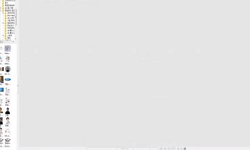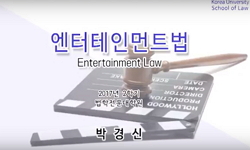As Fair Trade Commission (“FTC”) Chairman Timothy J. Muris has remarked, “the magic of email is that you can email almost anyone. The tragedy is that almost anyone can email you.” Email, a dominant way of communicating for both personal and bu...
http://chineseinput.net/에서 pinyin(병음)방식으로 중국어를 변환할 수 있습니다.
변환된 중국어를 복사하여 사용하시면 됩니다.
- 中文 을 입력하시려면 zhongwen을 입력하시고 space를누르시면됩니다.
- 北京 을 입력하시려면 beijing을 입력하시고 space를 누르시면 됩니다.

COMPARATIVE ANALYSIS ON SPAM LAWS FROM CONSTITUTIONAL PERSPECTIVE: U.S. CAN-SPAM ACT AND SOUTH KOREA PICNUIP - SHOULD SOUTH KOREA SWITCH BACK TO OPT-OUT?
한글로보기https://www.riss.kr/link?id=A105947236
-
저자
이지나 (연세대학교 법학연구원)

- 발행기관
- 학술지명
- 권호사항
-
발행연도
2018
-
작성언어
English
-
주제어
Spam email (Unsolicited Commercial Email) ; Commercial Speech ; Privacy ; Opt-out ; Opt-in ; CAN-SPAM Act ; 스팸메일 ; 광고표현의 자유 ; 프라이버시 ; 옵트아웃 ; 옵트인 ; 미연방정부스팸규제법
-
등재정보
KCI등재
-
자료형태
학술저널
-
수록면
129-159(31쪽)
-
KCI 피인용횟수
0
- DOI식별코드
- 제공처
- 소장기관
-
0
상세조회 -
0
다운로드
부가정보
다국어 초록 (Multilingual Abstract)
As Fair Trade Commission (“FTC”) Chairman Timothy J. Muris has remarked, “the magic of email is that you can email almost anyone. The tragedy is that almost anyone can email you.” Email, a dominant way of communicating for both personal and business purposes, has already replaced phone, fax and other traditional mail system. Email, like other methods of communication, enhances and reinforces the freedom of speech and furthers free exchange of information and ideas which is one of the quintessential values in a democratic society. However, the prevalence of unsolicited email has continuously become a significant problem for the internet service providers and users in general and there has been a vigorous effort to bring an end to this spam era worldwide. U.S. Congress enacted CAN-SPAM Act in 2003 and South Korea issued its very first anti-spam law in 1999, Act on the Promotion of Information and Communications Network Utilization and Information Protection (“PICNUIP”) and initially adopted an opt-out policy. However, recently in 2014, South Korea revised its anti-spam law from opt-out to opt-in. Through comparative analysis, I would like to suggest that South Korea revisit the spam act and consider switching the system back from opt-in to opt-out. Part I of the thesis delineates the history of CAN-SPAM Act legislation and prior bifurcated state laws on spam regulation. Part II looks at the details of PICNUIP by examining both past regulation and recently changed opt-in policy. PART III analyzes spam receiver’s constitutional right to privacy and their standing to sue by looking at the U.S. and South Korea’s legal system and their representative precedents. Part IV compares and contrasts the constitutionality of the U.S. and South Korea spam laws in regard to the freedom of commercial speech and regulation of spam emails. Finally, Part V explores the validity of South Korea’s recently adopted opt-in policy and argue that there are ‘alternative means’ to achieve the government interests rather than simply refraining the commercial advertisers from sending emails in the first place.
참고문헌 (Reference)
1 Magee, John, "The Law Regulating Unsolicited Commercial E-Mail: An International Perspective" 19 (19): 2002
2 Kerr, Orin S., "The Fourth Amendment and New Technologies: Constitutional Myths and the Case for Caution" 102 (102): 2004
3 Brudney, Victor, "The First Amendment and Commercial Speech" 53 (53): 2012
4 Lee, Jong-hwa, "The Court Ruled Spammers Violated Recipient’s Right to Privacy"
5 Youm, Kyu Ho, "The Constitutional Court and Freedom of Expression" 1 (1): 2001
6 Zhang, Lily, "The CAN-SPAM Act: An Unsufficient Response to the Growing Spam Problem" 20 (20): 2005
7 McNealy, Jasmine E., "Spam and the First Amendment Redux: Free Speech Issues in State Regulation of Unsolicited Email" 22 (22): 2017
8 Sullivan, Jeffrey D., "Spam After Can-Spam: How Inconsistent Thinking Has Made a Hash out of Unsolicted Commercial E-Mail Policy" 20 (20): 2003
9 Chung, Hyu-Bong, "Report on Anti-Spam Regulations in Korea, Personal Information Dispute Mediation Committee" Korea Information Security Agency 2003
10 Sohn, Kyung Han, "Privacy and Security Protection Under Korean E-Commerce Law and Proposals for its Improvements" 33 (33): 2016
1 Magee, John, "The Law Regulating Unsolicited Commercial E-Mail: An International Perspective" 19 (19): 2002
2 Kerr, Orin S., "The Fourth Amendment and New Technologies: Constitutional Myths and the Case for Caution" 102 (102): 2004
3 Brudney, Victor, "The First Amendment and Commercial Speech" 53 (53): 2012
4 Lee, Jong-hwa, "The Court Ruled Spammers Violated Recipient’s Right to Privacy"
5 Youm, Kyu Ho, "The Constitutional Court and Freedom of Expression" 1 (1): 2001
6 Zhang, Lily, "The CAN-SPAM Act: An Unsufficient Response to the Growing Spam Problem" 20 (20): 2005
7 McNealy, Jasmine E., "Spam and the First Amendment Redux: Free Speech Issues in State Regulation of Unsolicited Email" 22 (22): 2017
8 Sullivan, Jeffrey D., "Spam After Can-Spam: How Inconsistent Thinking Has Made a Hash out of Unsolicted Commercial E-Mail Policy" 20 (20): 2003
9 Chung, Hyu-Bong, "Report on Anti-Spam Regulations in Korea, Personal Information Dispute Mediation Committee" Korea Information Security Agency 2003
10 Sohn, Kyung Han, "Privacy and Security Protection Under Korean E-Commerce Law and Proposals for its Improvements" 33 (33): 2016
11 Alepin, Dominique Chantale, "Opting-Out: A Technical, Legal and Practical Look at the CAN-Spam Act of 2003" 28 (28): 2004
12 Bolin, Rebecca, "Opting Out of Spam: A Domain Level Do-Not-Spam Registry" 24 (24): 2006
13 Park, Kyung Su, "Korean Principle of Proportionality, American Multi-leveled Scrutiny, and Empiricist Elements in U.S.-Korean Constitutional Jurisprudence" 1 (1): 2001
14 Huh, Soon Chul, "Invasion of Privacy v. Commercial Speech: Regulation of Spam with a Comparative Constitutional Point of View" 70 (70): 2006
15 Potashman, Meyer, "International Spam Regulation & Enforcement: Recommendations Following the World Summit on the Information Society" 29 (29): 2006
16 Pesciotta, Daniel T, "I'm Not Dead Yet: Katz, Jones, and the Fourth Amendment in the 21st Century" 63 (63): 2012
17 Lim, Susuk, "Death of the Spam Wrangler: CAN-SPAM Private Plaintiffs Required to Show Actual Harm" 6 (6): 2010
18 "Available at: https://repository.law.umich.edu/mlr/vol102/iss5/1"
19 "Available at: http://scholarship.law.berkeley.edu/btlj/vol20/iss1/29"
20 "Available at: http://scholarlycommons.law.case.edu/caselrev/vol63/iss1/13"
21 "Available at: http://digitalcommons.law.scu.edu/chtlj/vol19/iss2/1"
동일학술지(권/호) 다른 논문
-
- 부산대학교 법학연구소
- 정이근(Jeong, Yi Keun)
- 2018
- KCI등재
-
- 부산대학교 법학연구소
- 송재우(Sohng, Chai Woo)
- 2018
- KCI등재
-
- 부산대학교 법학연구소
- 황용경(Hwang, Yong Kyung)
- 2018
- KCI등재
-
- 부산대학교 법학연구소
- 김이수(Kim, I Su)
- 2018
- KCI등재
분석정보
인용정보 인용지수 설명보기
학술지 이력
| 연월일 | 이력구분 | 이력상세 | 등재구분 |
|---|---|---|---|
| 2022 | 평가예정 | 재인증평가 신청대상 (재인증) | |
| 2019-01-01 | 평가 | 등재학술지 유지 (계속평가) |  |
| 2016-01-01 | 평가 | 등재학술지 유지 (계속평가) |  |
| 2012-01-01 | 평가 | 등재학술지 유지 (등재유지) |  |
| 2009-01-01 | 평가 | 등재학술지 선정 (등재후보2차) |  |
| 2008-01-01 | 평가 | 등재후보 1차 PASS (등재후보1차) |  |
| 2006-01-01 | 평가 | 등재후보학술지 선정 (신규평가) |  |
학술지 인용정보
| 기준연도 | WOS-KCI 통합IF(2년) | KCIF(2년) | KCIF(3년) |
|---|---|---|---|
| 2016 | 0.56 | 0.56 | 0.72 |
| KCIF(4년) | KCIF(5년) | 중심성지수(3년) | 즉시성지수 |
| 0.75 | 0.7 | 0.866 | 0.2 |




 KCI
KCI







